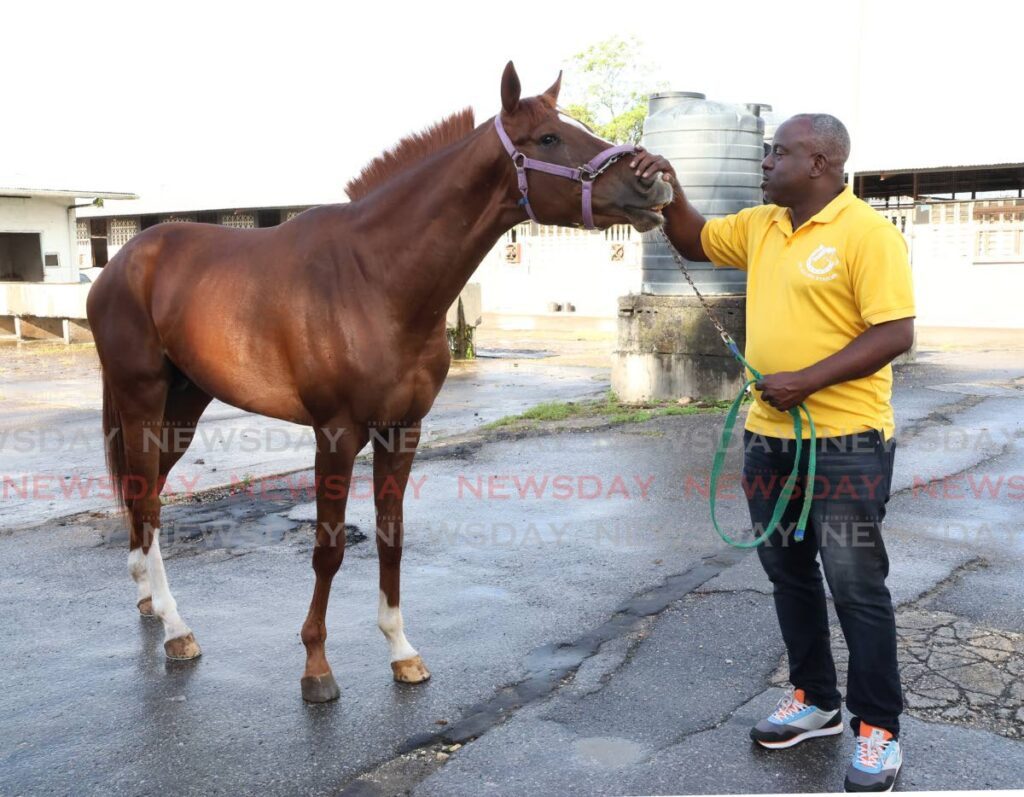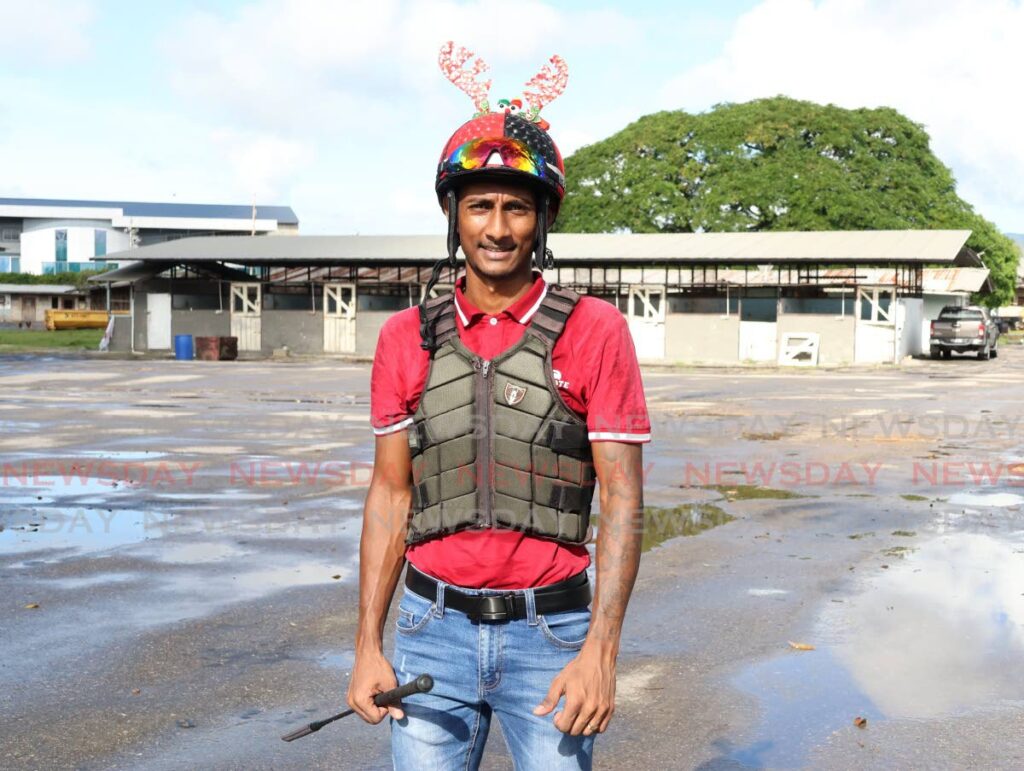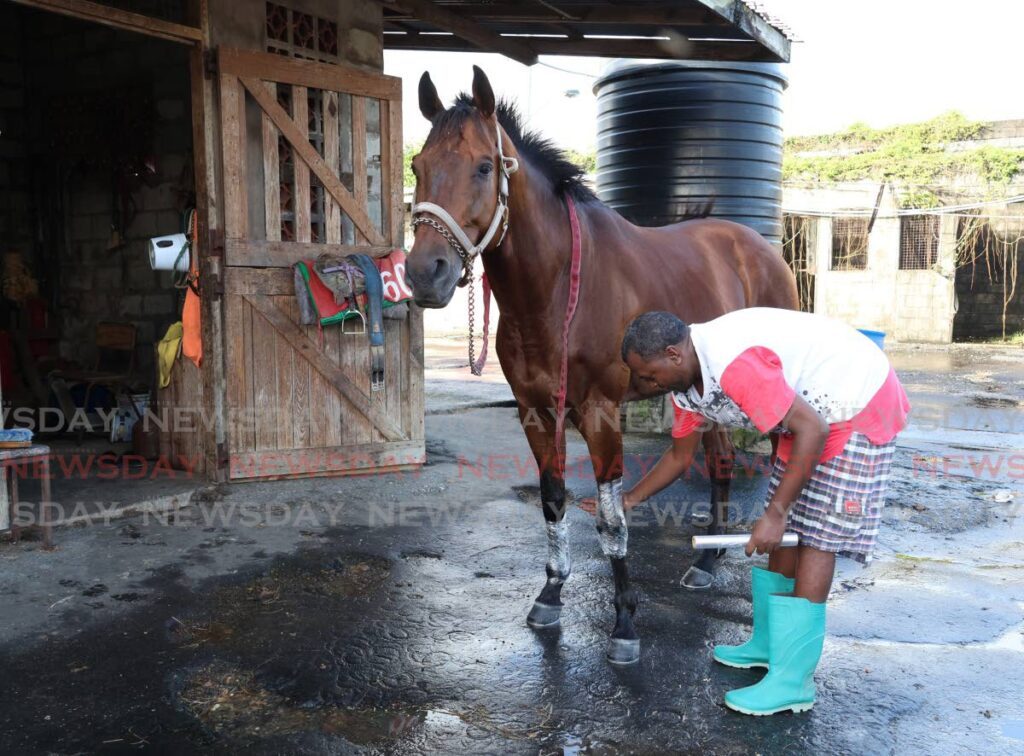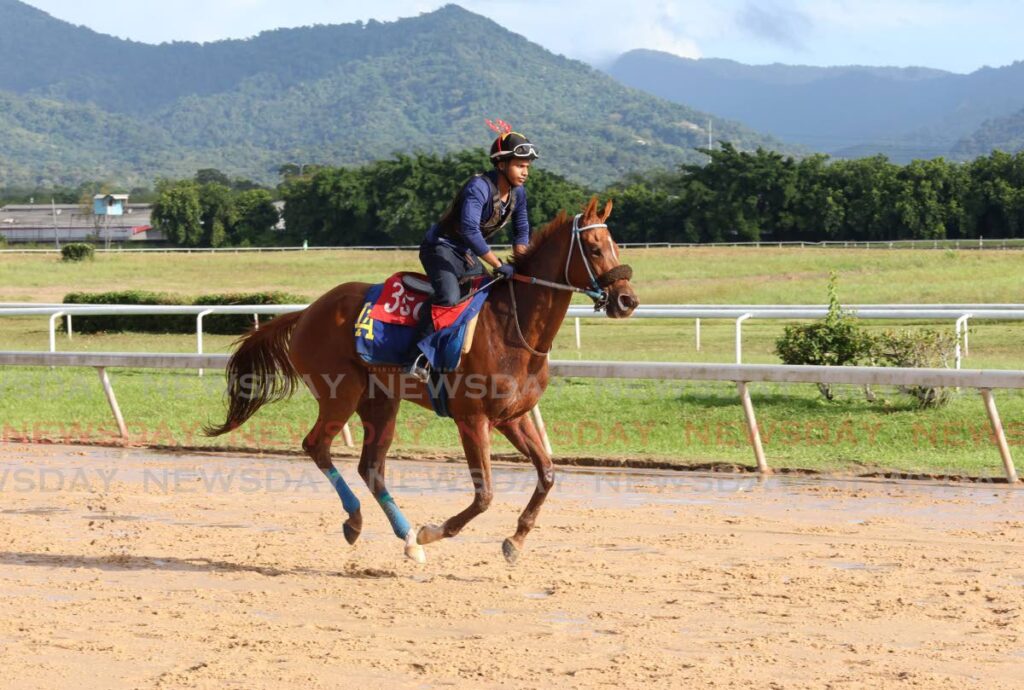Trainers, owner, jockey on love for horse racing: The making of a champion

FOR horse-racing fans, particularly punters, seeing their favourite horse sprinting to the finish line ahead of its rivals is euphoric, but it does not compare to the adrenaline felt by jockeys, trainers and others involved in the process of developing a champion race horse.
Horse racing has a long history in Trinidad with the Queen's Park Savannah in Port of Spain and Union Park in Marabella hosting events in the past. Now the only place for horse-racing enthusiasts to witness the action is at Santa Rosa Park, Arima.
The Arima Race Club is the governing body for the sport but faces tremendous challenges.
Before the covid19 pandemic stymied the racing industry, 500 horses were available to race at Santa Rosa Park.
That number has dwindled to less than 100 horses.
The passion of jockeys, horse owners and trainers is undoubted as they spend years trying to develop a competitive horse.
Winning a major race, whether at Easter, Independence Day, Boxing Day or New Year's Day, is a thrill like no other.
Trainer Terrance Thomas has 30 years' experience in the business with Just Exhale, a former Guineas champion, one of his premier horses. To say he lives and breathes horse racing would be an understatement.

Thomas said, "No marijuana, no alcohol – whatever brand is your poison, no adrenaline rush (is better)...Nothing compares to that rush, that feeling, that level of euphoria...
"That's what keeps us coming here through the rain, through the sun, waking up ungodly hours...It is more addictive than cocaine. It is something we hunt, we live for this."
Trainer Glenn Mendez, 62, has 37 years in the business. He is no stranger to success. Carnival Messiah and Top of the Class were both Triple Crown winners under Mendez. Pride 'N' Glory and Crown Point are two other horses trained by Mendez that have had many wins over the years.
Asked if winning ever gets boring, Mendez said, "No, it does not...Each and every win is special. It does not get old. The reason you are in riding is to be the best and so when you win the classic races, those are basically feathers in your cap."
Jockey Dillon Khelawan knows the feeling of winning after guiding Hello World to the crown in the feature race at the Independence Day card in 2024.

Khelawan, who has over 12 years' experience being a jockey, described how it felt to win his first race. "A feeling you really can't explain. You are overwhelmed – joy, tears of joy as well."
Blue Tequila was one of the horses Khelawan led to a major title in his early years of racing.
Owner Dwight Hunte, who has 14 horses, said, "That feeling is so electric, especially if you have friends and family around to enjoy it with you," he said.
Hunte runs the DTL Racing Stables along with Terry Inniss and Lawrence Berment.
All hands on deck
Most people don't get to witness all that unfolds before a race day. Jockeys will be in front the camera, but behind the scenes it is an all-hands-on-deck approach.
Trainers, grooms, exercise riders, farriers, horse-feed personnel and veterinarians are some of those involved to get a horse in peak form.
"Very few people become that close to actual horses to know how much goes on behind the scenes," Mendez said. "The average race fan is just a race-fan punter who comes on a race day because they like the racing and they like the little gambling."
"We are like the coach and we have our staff to follow our instructions and do the actual work. It takes a lot.
"When you wake them up in the morning you bring them out, they brush them down, clean them...Even in their own stalls in the night they can hurt themselves."
Thomas said developing a race horse begins just after its birth.
"When a horse is born he spends the first year and a half, almost two years on the farm just maturing, developing. After that he is ushered into the paddocks where we get them accustom to the human touch, being on them, being around them.
"The nutrition; the days you train is very important; the days you rest is very important." Thomas said horses can't talk, so trainers and vets must pick up on cues so they will determine what they need.
Thomas said, "Like Usain Bolt, we think he is fastest thing and the best thing since sliced bread, and we don't really understand what Usain Bolt has to do on the off days or the days in preparation for this event. The same thing with the animals...they know the animals train, they know the animals have a rigid routine, but the nuance details – they have (little knowledge of that).

"To have him (Just Exhale) standing here, it takes ten different people in ten different areas to have him looking nice and shiny and happy and receptive to what is going on here. Everybody has their part to play."
Hunte said as a major race-day draws near, everyone hopes for the best.
"Leading up to the races is nerve-racking because you don't want anything to happen to the horses. You are waking up every morning hoping he or she did not do any foolishness in the stall. It has you on edge...but on race-day once they go in the gates, everybody happy."
For the love, not the $$
Hunte has been involved in horse training since he was a child. He grew up in Belmont, a stone's throw away from the Queen's Park Savannah where horse racing was held until the mid 1990s. Santa Rosa Park in Arima has been the only venue used for horse racing since April 1994.
"I got into the sport through family, mainly my dad side of the family from Barbados. We had a lot of influential racing personnel on that side of the family." He said the Griffith family influenced him.
"This sport is a love. It is so much of a love that sometimes it is hard to pull away yourself from it. If you thinking about the financial aspect, you will definitely pull away from it," Hunte said.
It costs roughly $6,000-$6,500 monthly to take care of a horse, said Mendez and Hunte.
Mendez also grew up in Port of Spain, spending time in Belmont and Woodbrook. As a youngster in the 1970s, the Queen's Park Savannah was a second home for him along with his brothers.
"I used to go to the track with them since I was about ten years old."
Mendez said before going to school at Fatima College he would in the savannah. "I got so taken (up) with racing, I used to be in the savannah clocking (timing) horses and helping them out...
"That is where it started and that was just as a fan of racing, but getting in the actual business of racing I was in my twenties, around 25 years old."

Khelawan was introduced to the sport by his family.
His brother Kerron Khelawan is also a jockey.
"My uncle had horses...we used to go across there when we were kids and help them take care of the horses. We used to get one or two rides on the farm. One thing led to another and we say we will give it (riding) a try."
He started working with trainer Harold Chadee and began taking racing more seriously.
His diminutive size is crucial in determining the success of a horse as he tries to maintain a weight of around 120 pounds.
The ideal weight for jockeys is no more than 125 pounds.
Khelawan said, "That is a big factor and challenge for me because I'm a pretty tall guy and I have a little bit of muscle. On race day I will have to take a little sweat and diet properly sometimes."
Given the Christmas season, with many culinary delights on the table, it might be a bigger challenge for Khelawan and others to make weight, but their appetite for success eventually prevails.

Comments
"Trainers, owner, jockey on love for horse racing: The making of a champion"